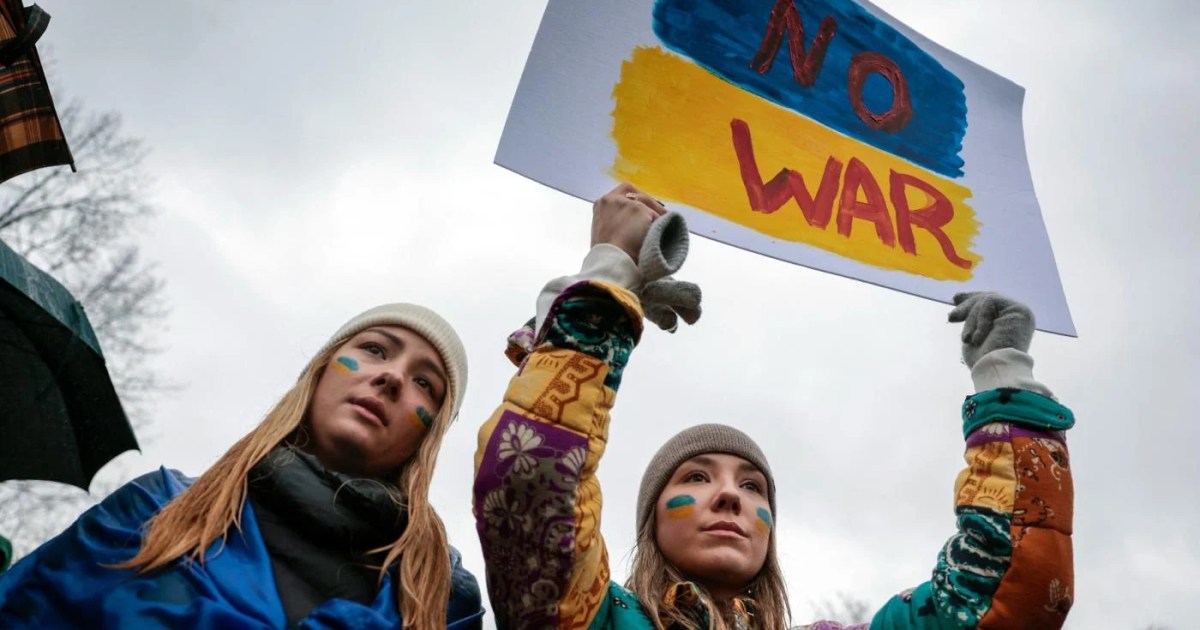Since the beginning of the Russian invasion of Ukraine, the West considers any attempt to deal with the crisis with a balance of betrayal and deals with the logic that "either you support the heroic Ukrainian struggle against the brutal Russia, or you are an agent of Putin."
This is what the former Italian diplomat Marco Carnelos sees in an article for the "Middle East Eye" website, in which he wonders, how did Western thinking become so narrow?
Carnelos says that the war in Ukraine is turning towards an escalation, in light of the determination of Russian President Vladimir Putin to get out of it with regional gains for his country, and the determination of the West to prevent this from happening.
A fine line
The article notes that Washington has recently abandoned its hesitation about supplying Kyiv with weapons, and tanks, heavy artillery and combat aircraft have poured into Ukraine.
Russia is also now investigating acts of "sabotage" by elements of British forces on Ukrainian soil, which means that British forces may be involved in the struggle against Russian forces.
For the former British diplomat, the line between proxy war and direct confrontation in the war between Russia and NATO has now become very thin.
And the statements by both sides confirming their readiness to continue the war make it clear that there is no room for diplomacy in the foreseeable future.
It went so far as to suggest that NATO's former supreme commander in Europe, Philip Breedlove, should send troops to Ukraine, saying that the fear that Putin would use nuclear weapons should not prevent NATO from interfering.
Dangerous absurd game
To highlight the extent of the international division over the position of the conflict, and the intolerance of the West to the position that it wants to make the rest of the countries adopt, the writer believes that NATO, the European Union and the Group of Seven are working hard to make Russia an international pariah.
While countries such as Brazil, India, China and South Africa, as well as the so-called global south, maintain a noticeable distance from the crisis, especially with regard to being careful to move away from adopting the West's narrative about the war.
It is true that the vast majority of members of the United Nations General Assembly have condemned Putin's invasion of Ukraine, and Russia has been suspended from the Human Rights Council, but only members of NATO, the European Union and the Group of Seven have adopted sanctions against Russia, says Carnelos.
During the meeting of the G-20 finance ministers - and speaking to the writer - no minister followed the members of the American, Canadian, British and Australian delegations that left the hall in protest against the presence of Russia's representatives.
Nor did EU officials leave the hall except during the Moscow representative's speech.
While Indonesia, which holds the presidency of the Group of Twenty, and China have blocked a proposal to expel Russia from the group.
The writer says that in light of these great risks and deep divisions, one might think that the positions of the major players in the international community have been taken after a comprehensive debate and critical thinking weighing matters, but that discussion has not yet taken place, especially in Europe.
He believes that the conflict has become a dangerous absurd game, as it seems that Russia has found itself - as expressed by some of its officials - in front of two options: either it will emerge from the war victorious, or it will be destroyed.
The West would accept no less solution than regime change in Moscow.
Either with us or against us
The former Italian diplomat said that the West deals with the war with a logic similar to the famous logic used by former US President George W. Bush after the attacks of September 11, 2001, "either you are with us or with the terrorists."
In this context, the writer says that any attempt to present a logical political analysis by the West is considered a betrayal.
Famous scholars of international relations, such as John Mearsheimer, have been vilified for their evidence-supported skepticism of past actions and omissions by all the major players in the crisis.
The writer stresses that the West has made no effort to try to understand whether Russia's security concerns and past political claims are justified, and whether the West should deal with them better.
The former Italian diplomat concluded his article by recalling that democracies are notorious for asking legitimate questions and raising legitimate doubts.
While authoritarian regimes maintain a long tradition of suppressing opinion and debate, today both sides of the conflict are seen using the same techniques as authoritarian regimes.

